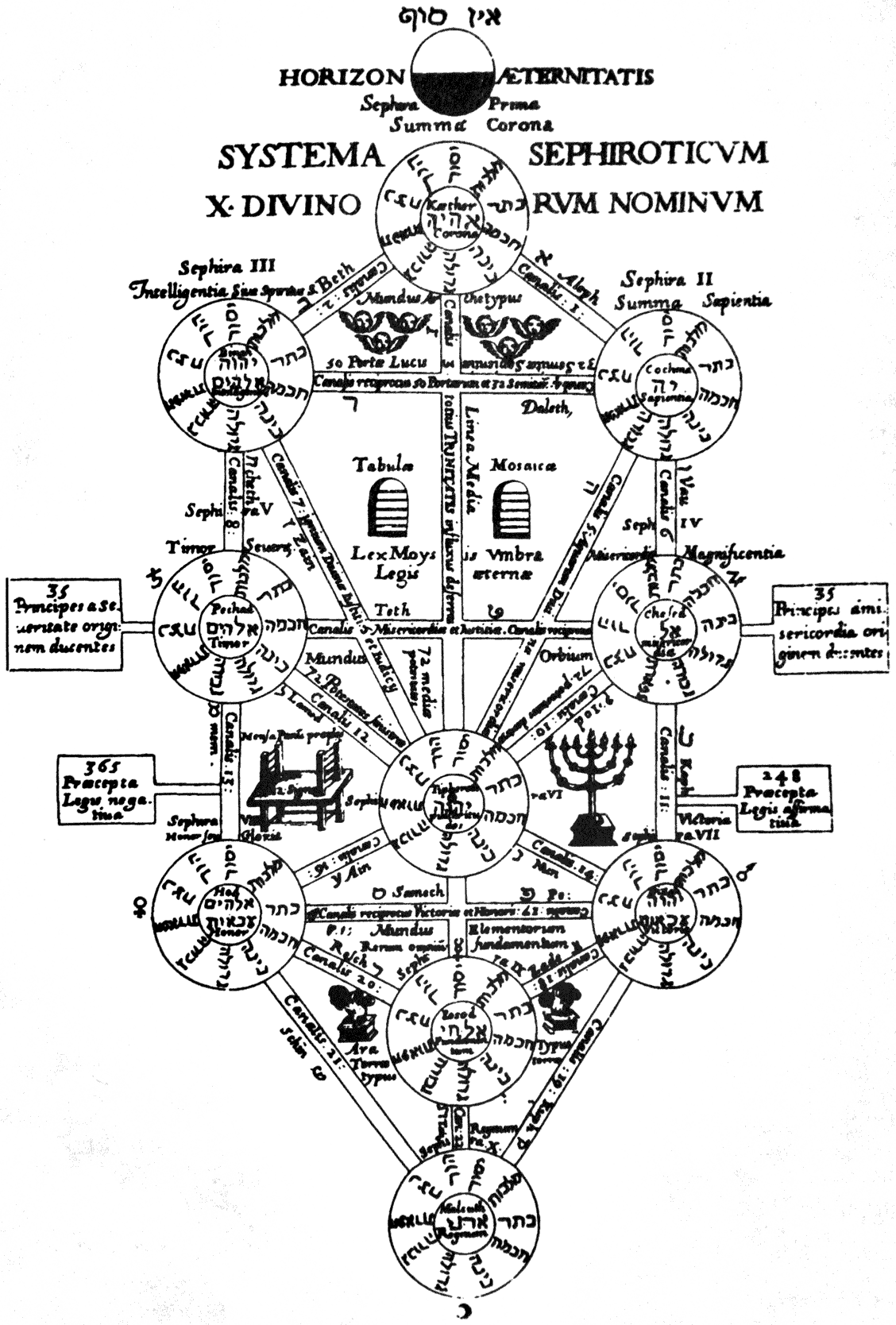Difference between revisions of "Judaism"
Occultwiki (talk | contribs) |
Occultwiki (talk | contribs) |
||
| Line 33: | Line 33: | ||
===In the Bible=== | ===In the Bible=== | ||
Though | Though Jewish Law prescribed the death penalty to practitioners of [[necromancy]] (Leviticus 20:27), this warning was not always heeded. One of the foremost examples is when King Saul had the [[Witch of Endor]] invoke the spirit of Samuel, a judge and [[prophet]], from Sheol using a ritual conjuring pit (1 Samuel 28:3–25). However, the witch was shocked at the presence of the real spirit of Samuel for it says, "when the woman saw Samuel, she cried out in a loud voice." | ||
Samuel questioned his reawakening asking, "Why hast thou disquieted me?" Saul did not receive a death penalty (his being the highest authority in the land) but he did receive it from [[Yahweh|God]] himself as prophesied by Samuel during that conjuration – within a day he died in battle along with his son Jonathan. | Samuel questioned his reawakening asking, "Why hast thou disquieted me?" Saul did not receive a death penalty (his being the highest authority in the land) but he did receive it from [[Yahweh|God]] himself as prophesied by Samuel during that conjuration – within a day he died in battle along with his son Jonathan. | ||
Revision as of 15:51, 19 October 2023
Judaism is an Abrahamic, monotheistic, and ethnic religion comprising the collective religious, cultural, and legal tradition and civilization of the Jewish people.
It has its roots as an organized religion in the Middle East during the Bronze Age. Modern Judaism evolved from Yahwism, the religion of ancient Israel and Judah, by around 500 BCE, and is thus considered to be one of the oldest monotheistic religions. Judaism is considered by religious Jews to be the expression of the covenant that God established with the Israelites, their ancestors. It encompasses a wide body of texts, practices, theological positions, and forms of organization.
Hebrew Bible
The Torah is part of the larger text known as the Hebrew Bible, and its supplemental oral tradition is represented by later texts such as the Midrash and the Talmud. Judaism's texts, traditions and values strongly influenced later Abrahamic religions, including Christianity and Islam. Hebraism, like Hellenism, played a seminal role in the formation of Western civilization through its impact as a core background element of Early Christianity.
Sects of Judaism
Within Judaism, there are a variety of religious movements, most of which emerged from Rabbinic Judaism, which holds that God revealed his laws and commandments to Moses on Mount Sinai in the form of both the Written and Oral Torah. Historically, all or part of this assertion was challenged by various groups such as the Sadducees and Hellenistic Judaism during the Second Temple period;the Karaites during the early and later medieval period; and among segments of the modern non-Orthodox denominations.
Some modern branches of Judaism such as Humanistic Judaism may be considered secular or nontheistic.
Today, the largest Jewish religious movements are Orthodox Judaism (Haredi Judaism and Modern Orthodox Judaism), Conservative Judaism, and Reform Judaism. Major sources of difference between these groups are their approaches to halakha (Jewish law), the authority of the rabbinic tradition, and the significance of the State of Israel.
Orthodox Judaism maintains that the Torah and halakha are divine in origin, eternal and unalterable, and that they should be strictly followed. Conservative and Reform Judaism are more liberal, with Conservative Judaism generally promoting a more traditionalist interpretation of Judaism's requirements than Reform Judaism. A typical Reform position is that halakha should be viewed as a set of general guidelines rather than as a set of restrictions and obligations whose observance is required of all Jews. Historically, special courts enforced halakha; today, these courts still exist but the practice of Judaism is mostly voluntary. Authority on theological and legal matters is not vested in any one person or organization, but in the sacred texts and the rabbis and scholars who interpret them.
Jewish mysticism
Although there is an esoteric tradition in Judaism (Kabbalah), Rabbinic scholar Max Kadushin has characterized normative Judaism as "normal mysticism," because it involves everyday personal experiences of God through ways or modes that are common to all Jews.
Kabbalah means "received tradition," a term which was previously used in other Judaic contexts, but the Medieval Kabbalists adopted it as a term for their own doctrine in order to express the belief that they were not innovating, but were merely revealing the ancient hidden esoteric tradition of the Torah.
The Kabbalistic form of Jewish mysticism itself is divided into three general streams:
- Theosophical/Speculative Kabbalah (seeking to understand and describe the divine realm)
- Meditative/Ecstatic Kabbalah (seeking to achieve a mystical union with God)
- Practical Kabbalah (seeking to theurgically alter the divine realms and the World).
These three different, but inter-relating, methods or aims of mystical involvement are also found throughout the other pre-Kabbalistic and post-Kabbalistic stages in Jewish mystical development, as three general typologies. As in Kabbalah, the same text can contain aspects of all three approaches, though the three streams often distill into three separate literatures under the influence of particular exponents or eras.
Within Kabbalah, the theosophical tradition is distinguished from many forms of mysticism in other religions by its doctrinal form as a mystical "philosophy" of Gnosis esoteric knowledge.
As understood by Jewish Kabbalists, the tradition of theurgic Practical Kabbalah is censored and forgotten in contemporary times because without the requisite purity and holy motive, it would degenerate into impure and forbidden magic. Consequently, it has formed a minor tradition in Jewish mystical history.
In the Bible
Though Jewish Law prescribed the death penalty to practitioners of necromancy (Leviticus 20:27), this warning was not always heeded. One of the foremost examples is when King Saul had the Witch of Endor invoke the spirit of Samuel, a judge and prophet, from Sheol using a ritual conjuring pit (1 Samuel 28:3–25). However, the witch was shocked at the presence of the real spirit of Samuel for it says, "when the woman saw Samuel, she cried out in a loud voice."
Samuel questioned his reawakening asking, "Why hast thou disquieted me?" Saul did not receive a death penalty (his being the highest authority in the land) but he did receive it from God himself as prophesied by Samuel during that conjuration – within a day he died in battle along with his son Jonathan.

